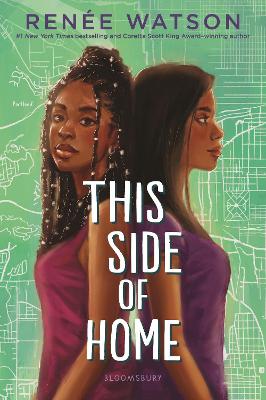They've painted and planted and made beauty out of decaying dreams. Block after block, strangers kept coming to Jackson Avenue, kept coming and changing and remaking and adding on to and taking away from.
Best friend and neighbour Essence is forced from the rental property she shares with her alcohol dependant mother, the landlord an opportunistic man exploiting the real estate demand. Another white family are now residents within the Portland community while her suburban school begins to diversify.
Maya's frustration was palpable. Her community flourishing black family homes are being acquired and businesses financially constrained while residents acclimatise. Maya has inherited her parental legacy, her mother and father community activists while encouraging Maya to uphold her ideals. As Maya and Nikki form a tentative friendship with new neighbours, Nikki is thriving, exploring the contention of Caucasians encroaching on black communities.
As senior president, Maya will collaborate with the new principle who is determined to innovate and positively influence education for all students. As Richmond tradition, the school celebrates Black History Month but as the new diversification has been introduced, African American students will celebrate diversity. The principal seemed awfully misguided. While attempting to promote inclusion, he erased the cultural signification of black teens and as a black educator he was inconsiderate and dismissive.
Instinctive prejudice and stereotyping of the African American community is predominant within the Portland suburb and touches upon black residents campaigning for community safety, beautification and infrastructure. Landlords evicting tenants from debilitated homes, refurbishing to satisfy white families. The community seems reluctantly accepting of the suburb transformation, Nikki in particular and Maya begins to challenge her sister and her ideals, causing a fracture within their relationship.
A point of contention is the flourishing interracial relationship between Maya and new neighbour Tony, shortly after her dissolving relationship with Devin.
And women throughout our neighborhood pull me aside, saying things like, "I'm glad he's dating you and not one of them." And by them they either mean a white girl or hood girl.
Although Tony is attentive and considerate, Maya experiences a sense of expectations within the wider community. Her concern of being hypocritical, dating a Caucasian Tony in contrast to diversifying her Portland town with the influx of white families. While at Richmond, white and Hispanic students are instrumental in a new diversity inclusion policy, at the detriment of black students and Black History Month. It raises the discussion of marginalisation and the erasure of racial identities in favour of inclusion. Inclusion is paramount in creating safe spaces especially with adolescents but the cultural and historical significance of Black History Month in particular should be celebrated. Black teens should be celebrated. One month per year shouldn't be infringed upon.
This Side Of Home is an intelligent read, wonderfully diverse and encourages discussion about cultural significance and inclusion. Compelling, compassionate reading.
For more reviews like this one, check out My Blog.
